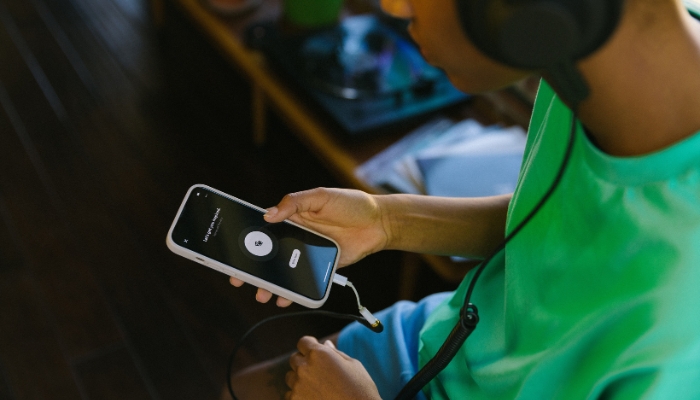
Navigating the technological world can be like walking through a maze in the dark. You’re often unsure about where you’re going or what you might run into. Let’s shine a light on one concern that might be bugging you: can imei be tracked when phone is off?
No, under normal circumstances, an IMEI cannot be tracked when the phone is off, as the device does not communicate with cellular networks in this state.
It’s a question that sits at the intersection of technology, privacy, and security. While we’re not going to give it all away just yet, let’s just say that the answer might surprise you. Shall we take this journey together?
Understanding the Concept of IMEI
Before we delve deeper, it’s crucial that you understand what IMEI is. The International Mobile Equipment Identity (IMEI) is a unique identifier for your mobile device. It’s like a fingerprint for your phone, distinguishing it from all other devices.
If you’ve ever lost a phone, you’ve probably heard of IMEI. When a phone goes missing, the IMEI can be used for device location tracking. This isn’t a job for you, though. It’s typically handled by police authorities and telecom companies.
One method used for tracking is geofencing. This involves setting up a virtual boundary around a geographical area. When your device crosses this boundary, an alert is triggered.
Cell tower triangulation is another method. Your phone is always communicating with nearby cell towers. By comparing the signal strengths from multiple towers, your device’s location can be estimated.
Functionality of IMEI Tracking
Now that you’re familiar with what IMEI is and how it’s used in locating a lost device, let’s explore how IMEI tracking actually works.
It’s a process that involves your cellular service provider and inherent device tracking features. When your phone is on, it consistently communicates with nearby cell towers. This constant interaction makes IMEI tracking possible. Your cellular service provider uses this information to pinpoint your device’s location.
However, if your phone is off, the communication between your device and the cell towers stops, making it challenging to track the device. In some situations, such as when your device is stolen and the thief turns it off, you might think it’s impossible to track.
However, your service provider can still use the last known location to help find your device. The last signal your phone sent out before it was switched off can give a clue to its location.
The Possibility of Tracking a Phone When It’s Off

Understanding Phone Tracking: Clearing Common Misconceptions
When we think about tracking a mobile phone, we often imagine it as a constant, live location service. However, there are several misconceptions about how phone tracking works, especially when the phone is off.
- Offline Device Limitations: One major misunderstanding is the belief that an offline device can still send its current location. In reality, when a phone is switched off, it disconnects from the cellular network and internet connection, making real-time tracking impossible.
- Airplane Mode and Tracking: Similarly, activating airplane mode effectively cuts off all network connection and cell service, halting location sharing and device location tracking & geofencing.
- Battery Power Considerations: A common myth is that battery power or battery health doesn’t impact tracking. However, a phone with drained battery capacity cannot maintain a connection to cell phone location services or cell networks.
- Assisted GPS Functionality: Some believe that Assisted GPS (A-GPS) can track phones when off. A-GPS indeed enhances location accuracy but requires an active internet access to function.
Technical Explanation of Phone Operation States
To understand the feasibility of tracking a phone when it’s off, it’s important to know the different operational states of a phone and how they impact tracking capabilities.
- Switched-Off State: In this state, the phone has no power, rendering phone tracking with IMEI number ineffective, as all functions, including tracking apps, are inactive.. Instant alerts, phone surroundings data, and device’s real-time location cannot be sent or received.
- Sleep Mode: While in sleep mode, phones, especially Android devices and Android phones, still maintain a minimal connection with the nearest cell tower. However, this state only allows for basic functions and not detailed tracking.
- Connected but Inactive: In this state, a phone is on but not actively used. Location history and cell tower IDs can be logged, but only if location service and network connection are active.
- Active and Connected: This is the only state where comprehensive tracking is feasible. Here, features like Google Photos, mapping apps, and device location tracking & geofencing are fully functional, offering exact location and real-time updates.
The Role of External Factors in Phone Tracking
External factors also play a crucial role in tracking a phone, whether it’s on or off.
- Mobile Service Providers: They can track basic phone location through connection through tower networks. However, this is mostly approximate and relies on the density of cell towers in the area.
- Third-Party Apps: Apps like Download Prey Anti-Theft can help in tracking, but they require the device to have active internet access and phone service.
- Law Enforcement and Tracking: In some cases, police report and collaboration between police departments can lead to tracking a phone using its IMEI number, even when off. This, however, is a specialized process and not commonly available.
- Device Manufacturer and Security Features: Some device manufacturers offer built-in tracking solutions like Find My Device for Android smartphones. These, too, require the device to be on and connected to the internet.
In conclusion, tracking a phone when it’s off is mostly an impossible task, with limited scope and accuracy. While certain conditions and advanced device features can offer minimal tracking capabilities, the general understanding is that a completely powered-down phone remains untraceable until it is turned back on and reconnected to a network.
This emphasizes the importance of preventative measures like setting a PIN code, securing factory settings, and using comprehensive security tools to protect your phone.
Privacy Concerns Related to IMEI Tracking

While there’s some comfort in knowing your phone can be tracked using the IMEI, even when off, it’s crucial to consider the privacy issues that could arise from this kind of tracking. IMEI tracking, while useful, raises serious privacy concerns.
You might be wondering, ‘What if my IMEI falls into the wrong hands?’ The risk of unauthorized access is real. In the wrong hands, your IMEI could be used for nefarious purposes, leading to a serious breach of privacy. Someone with malicious intent could potentially track your movements, access personal data, or even clone your phone. Imagine if someone knew your every move, every call, every text, even when your phone is off. That’s a scary thought, isn’t it?
It’s important to note that the legality of IMEI tracking varies from country to country. In many places, it’s strictly regulated and can only be accessed by law enforcement under specific circumstances. Nevertheless, it’s essential to be aware of the potential privacy concerns that IMEI tracking presents.
Protecting your IMEI is just as important as safeguarding any other personal information.
Case Studies and Real-Life Examples: Successes in IMEI Tracking
The use of IMEI (International Mobile Equipment Identity) numbers in tracking lost or stolen phones has seen some notable successes. These real-life instances not only showcase the effectiveness of IMEI tracking but also offer valuable insights and lessons.
Recovery of a Stolen Phone through Police Collaboration
In one notable case, a lost phone was successfully recovered by the police using its IMEI number. The victim had filed a police report immediately after the theft, providing the IMEI number.
The police used this number to track the phone to a local electronics market, leading to the recovery of the phone and arrest of the thief.
- Lesson Learned: Prompt action and providing the IMEI number to law enforcement can significantly increase the chances of recovering a lost or stolen device.
Locating a Missing Person via Phone Tracking
In another instance, authorities used IMEI tracking to locate a missing person. The individual’s phone was last detected at a remote location, which was pinpointed using the nearest cell tower data. The search team was dispatched to the area, leading to the safe recovery of the person.
- Lesson Learned: IMEI tracking can be a crucial tool in emergency situations, extending beyond just recovering lost property.
Combating Phone Theft Rings
Law enforcement agencies in several countries have used IMEI tracking as a method to dismantle organized phone theft rings.
By tracking the movement of stolen phones using their IMEI numbers, police have been able to identify and arrest members of these rings, recovering large numbers of stolen devices.
- Lesson Learned: IMEI tracking can play a significant role in broader efforts to combat organized crime and reduce phone theft.
Community Efforts in Recovering Lost Devices
In a community-driven success story, a lost phone was recovered with the help of an online community of tech enthusiasts. The owner posted the phone’s IMEI number on a popular forum, and members helped track the phone’s last known cellular connection. This information was then used to locate and retrieve the phone.
- Lesson Learned: Leveraging community resources and technology forums can aid in the recovery of lost devices.
These examples highlight the effectiveness of IMEI tracking in certain scenarios. While it’s not always a guarantee, especially with disconnected devices or phones in airplane mode, IMEI tracking remains a powerful tool in the arsenal against phone theft and loss.
These cases also underscore the importance of being aware of one’s phone’s IMEI number and understanding the device service and tracking capabilities offered by mobile service providers and device manufacturers.
Steps to Protect Your Phone From Unauthorized Tracking

To ensure you’re not a victim of unauthorized tracking, it’s essential to take certain steps to protect your phone and your IMEI. Even when your phone is off, you can’t be too careful in making sure your information stays secure.
Here are a few measures you can take:
- Use a strong passcode: A simple but crucial step to protect your phone. It’s the first line of defense against unauthorized access.
- Update your phone regularly: Software updates often include security enhancements that can prevent tracking.
- Disable GPS when not in use: This can limit the potential for tracking.
- Avoid suspicious links and apps: They could be vehicles for unauthorized tracking.
- Report lost or stolen phones immediately: The faster you act, the less chance there’s for your IMEI to be misused.
Conclusion
So, can imei be tracked when phone is off? The answer is complex. While technically possible, it’s not easy and depends on several factors, including the capabilities of systems like google tracking IMEI number. This tracking raises serious privacy concerns, making it crucial to safeguard your device.
Remember, be smart about where and how you use your phone, keep your software updated, and consider security apps. Understand the risks, protect your privacy, and stay safe in our digital world.
FAQs: Can IMEI Be Tracked When Phone is Off
What Should I Do If I Lose My Phone and It’s Turned Off?
If you lose your mobile phone and it’s turned off, the first step is to report it to your mobile service providers. Provide them with your phone’s IMEI number; they might be able to track its last known cellular connection. You should also file a police report with the IMEI number. While tracking a switched-off phone is challenging, these steps can help in case it is turned on or sold.
Is It Legal to Track a Phone Using Its IMEI?
Yes, it is legal to track a phone using its IMEI number, especially if it involves a lost or stolen device. However, the process usually requires involvement from law enforcement and mobile service providers. Unauthorized tracking or accessing someone else’s phone data without consent can be illegal and a violation of privacy.
How Accurate is IMEI Tracking?
IMEI tracking is generally accurate, but it depends on various factors like the density of cell towers and the phone’s connectivity status. When the phone is on and connected to a network, IMEI tracking can provide a fairly accurate location, often narrowed down to a specific area or street. However, if the phone is off or in airplane mode, tracking accuracy drops significantly.